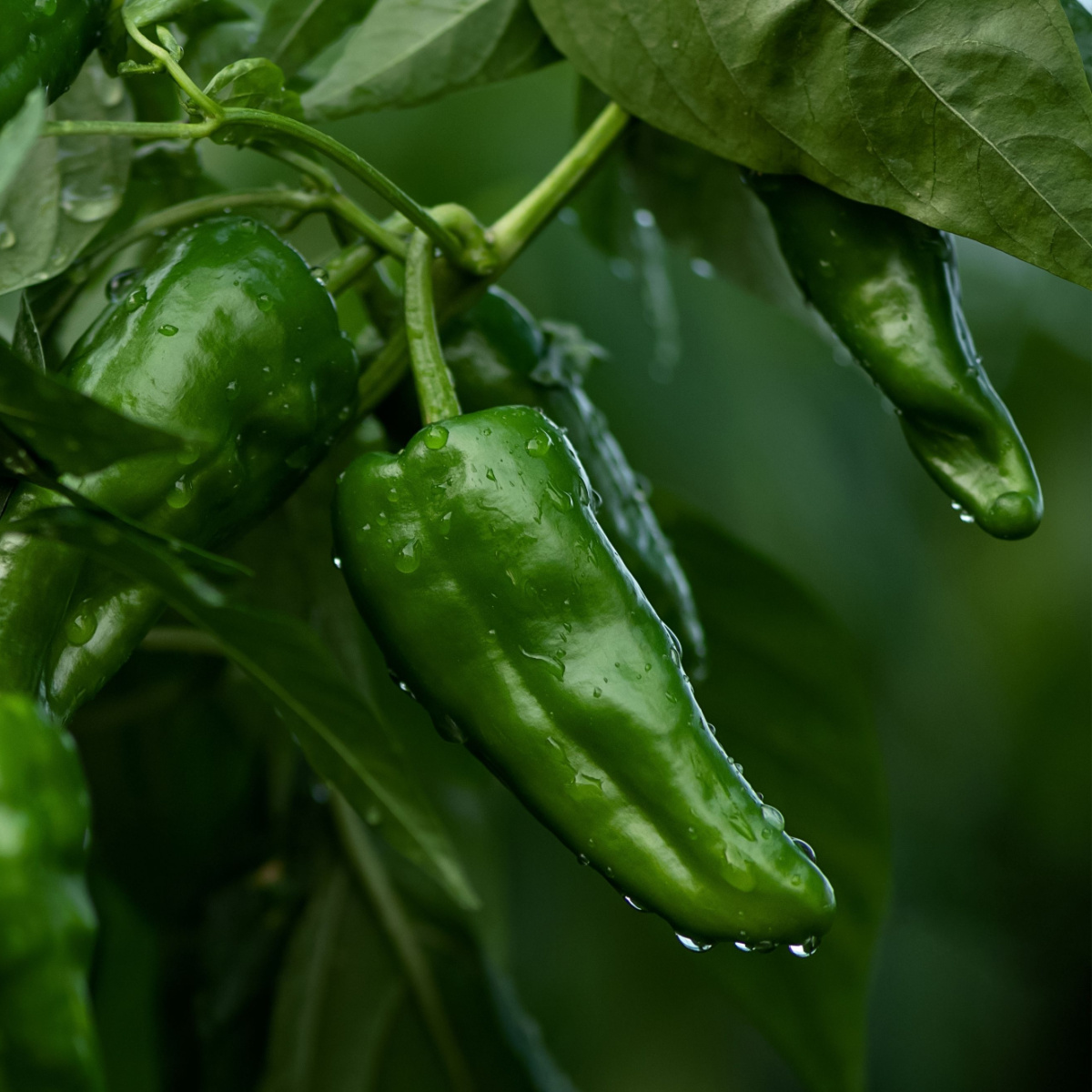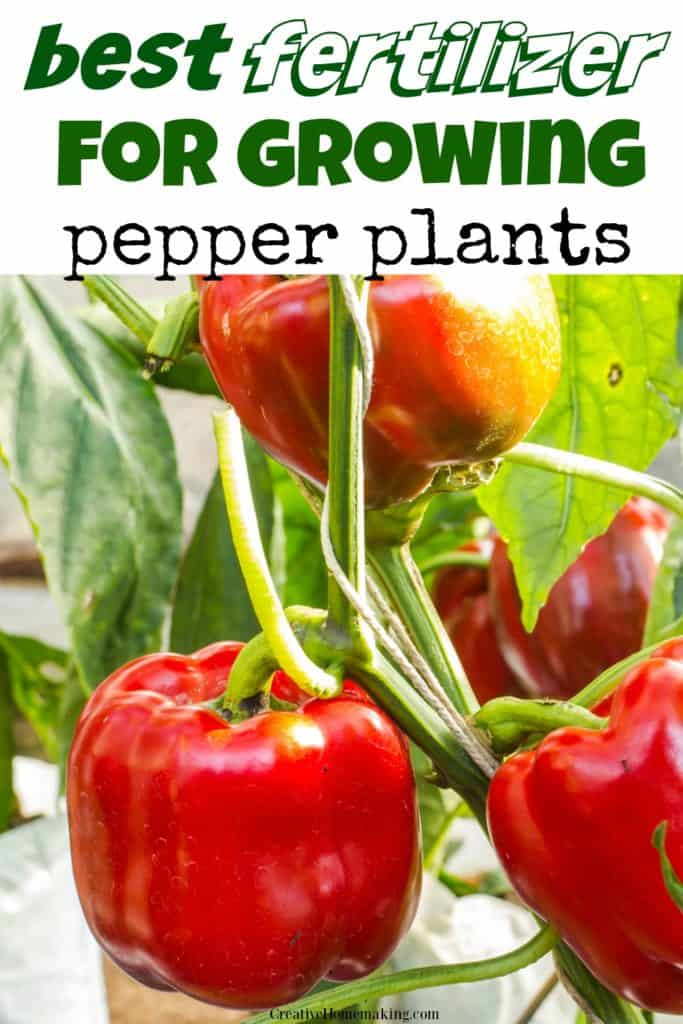Best Fertilizers for Peppers: Attain Superior Results in Your Garden
Best Fertilizers for Peppers: Attain Superior Results in Your Garden
Blog Article
Organic Vs. Synthetic Fertilizers: Which Is Best for Supporting Healthy Pepper Plants?
In the realm of supporting healthy pepper plants, the selection between synthetic and organic fertilizers stands as a critical decision with significant implications. While both alternatives aim to provide vital nutrients to sustain plant growth, the subtleties of their influence on the dirt, plant wellness, and the environment spark a discussion that mirrors throughout the horticulture community. Understanding the distinct benefits and potential challenges of each plant food kind is crucial for pepper farmers seeking to maximize their returns while preserving a sustainable and eco-conscious strategy.
Benefits of Organic Fertilizers
Organic fertilizers use an environmentally-friendly and lasting method to nourishing pepper plants, providing crucial nutrients without using artificial chemicals. These natural fertilizers are stemmed from organic resources such as compost, manure, bone dish, and algae, promoting soil wellness and biodiversity. Unlike synthetic fertilizers, organic options launch nutrients slowly, making sure a well balanced and stable supply for pepper plants to grow.
One significant advantage of organic fertilizers is their capacity to enhance dirt framework and water retention. By boosting dirt health, natural fertilizers promote advantageous microbial activity, which helps in nutrient uptake by pepper plants. In addition, organic plant foods decrease the risk of chemical run-off, securing water resources from contamination and safeguarding the environment.
In addition, natural plant foods contribute to lasting soil fertility by advertising the growth of beneficial soil microorganisms. These microorganisms assist break down raw material, releasing nutrients in a form that is easily obtainable to pepper plants. best fertilizers for peppers. By cultivating a healthy and balanced soil ecological community, natural fertilizers sustain sustainable pepper growing methods that profit both plants and the environment
Drawbacks of Artificial Fertilizers
Synthetic fertilizers, in contrast to their natural equivalents, position various disadvantages when utilized to nurture pepper plants, affecting both plant health and wellness and environmental sustainability. One major drawback of synthetic fertilizers is their tendency to leach nutrients from the dirt promptly.
Additionally, the overuse of artificial fertilizers can add to water pollution. Excess plant foods not taken in by plants can get rid of into water bodies, resulting in eutrophication, where algae blooms deplete oxygen degrees in the water, hurting aquatic life. Synthetic plant foods are commonly acquired from non-renewable resources, such as fossil gas, contributing to carbon discharges and ecological deterioration during their manufacturing.
Nutrient Absorption Comparison
When contrasting organic and synthetic plant foods in terms of nutrient absorption, organic fertilizers have the benefit of offering a more well balanced and slow-release source of nutrients. Organic plant foods include a variety of macro and micronutrients that are not just useful for the plants but likewise advertise healthy dirt microbial activity, which helps in nutrient uptake.
Moreover, organic plant foods improve dirt structure and water retention ability, allowing pepper plants to access nutrients much more effectively. This enhanced soil high quality helps with origin growth, making it possible for far better nutrient absorption. Artificial fertilizers, although originally increasing plant development due to their high nutrient focus, might prevent lasting nutrient absorption by derogatory soil health and wellness gradually.
Ecological Influence Factors To Consider

On the other hand, artificial fertilizers, although commonly even more right away offered and concentrated to plants, can have damaging impacts on the atmosphere otherwise applied effectively (best fertilizers for peppers). Their production needs high energy inputs, bring about greenhouse gas emissions and adding to climate modification. The drainage of excess artificial fertilizers can infect water sources, leading to eutrophication and harming marine ecosystems.
Best Plant Food Practices for Peppers
When fertilizing pepper plants, maximizing nutrient uptake and lessening ecological influence are vital factors to consider. To accomplish this, it is important to follow her explanation ideal fertilizer techniques tailored to the details requirements of pepper plants. One essential technique is to do a soil examination before applying any kind of fertilizers. This examination can establish the pH degree of the dirt and determine any type of nutrient deficiencies, directing you in selecting the most ideal plant food formulation.
An additional crucial method is to feed pepper plants at the correct time. Usually, peppers gain from getting fertilizer at growing and after that once more when they start to flower. Over-fertilizing can lead to vitamins and mineral inequalities and hurt the plants, so it is essential to adhere to recommended application rates.
Furthermore, choosing a well balanced fertilizer with an NPK ratio that matches pepper plants' demands is basic. Eventually, incorporating natural and synthetic plant foods judiciously can assist support healthy pepper try this plants while lessening environmental effect.
Verdict

Organic plant foods use a sustainable and environmentally-friendly strategy to beneficial pepper plants, offering crucial nutrients without the use of artificial chemicals. Unlike synthetic fertilizers, natural choices release nutrients slowly, making certain a steady and balanced supply for pepper plants to thrive.
Synthetic plant foods, in comparison to their natural equivalents, posture various drawbacks when utilized to nourish pepper plants, affecting both plant health and environmental sustainability. When contrasting natural and artificial plant foods in terms of nutrient absorption, natural plant foods have the benefit of giving a more balanced and slow-release resource of nutrients.Furthermore, natural fertilizers enhance soil structure and water retention capacity, allowing pepper view website plants to gain access to nutrients much more effectively.
Report this page